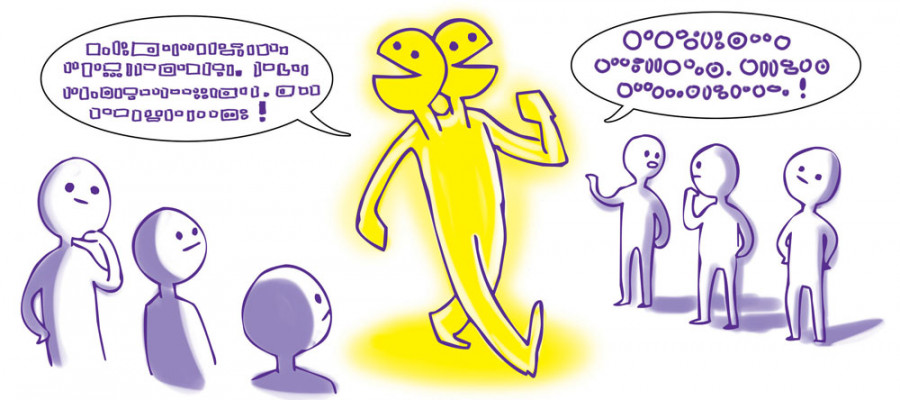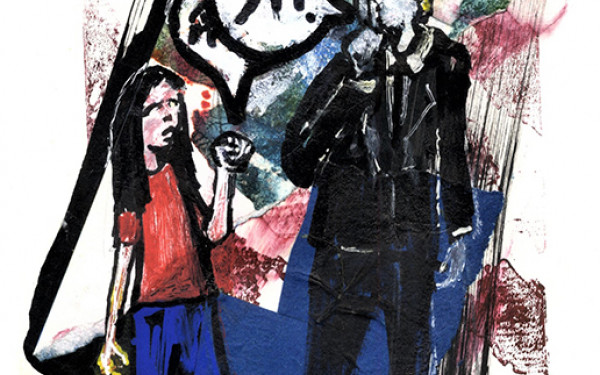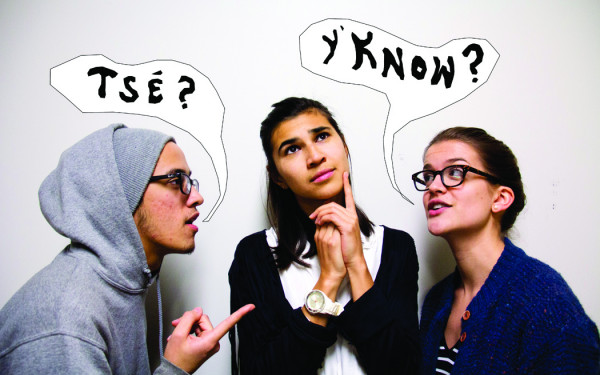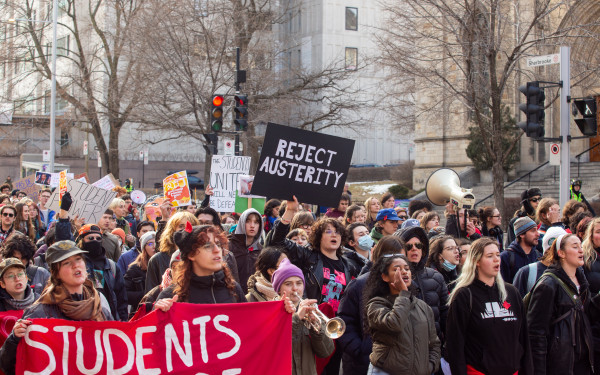Parlez-Vouz English?
CEGEP Exchanges Offer Opportunities for Bilingualism
With the job market’s consistently increasing competitiveness and fast pace, it feels like the further from the status quo our resumes are, the better our opportunities.
With the job market’s consistently increasing competitiveness and fast pace, it feels like the further from the status quo our resumes are, the better our opportunities.
Apart from significant Twitter mentions and your Klout score, something that’s often taken for granted—but is only growing in importance in employers’ eyes—is language.
How many languages you speak, how fluently and even how you learned them may all be sweet spots for the professional you’re trying to woo across the table, says Mark Goldenberg, a former federal assistant deputy minister who now conducts research for the University of Ottawa.
“[Language] especially stands out by what it says about the individual’s openness—openness to other cultures, to learning new things,” said Goldenberg, who led a study entitled “Two Languages: A World of Opportunities” in 2009. The study focused on bilingual education at the university level by the Office of the Commissioner of Official Languages.
“Workplaces aren’t the same, and it’s the end of your academic career, so if you don’t use it, you lose it,” added Goldenberg on the importance of acquiring or perfecting a second language at the university level.
The study attempted to assess the level of second-language learning in universities across the country. Given that French is Quebec’s official language, but that it’s a minority in the country, both English and French universities in the province recognized the need for a strong understanding of the two languages, and therefore a need for such a study, Goldenberg said.
But what Goldenberg’s team found were “serious gaps and unmet needs” in intensive second-language learning in universities across the country, which is the most effective way to see results when learning a second language, according to the study.
Despite its uniqueness in Canada and its universities’ “increasing awareness of globalism,” Goldenberg found that second-language teaching was conducted much the same way as it was in the rest of Canada.
The study published a series of findings and recommendations for universities in Canada to improve second-language learning. Among them were the fact that content-based learning in a second language—like taking a non-language based course in your second language—increases your chances of mastering it.
It also recommended that Francophone universities establish exchange programs with Anglophone ones and vice versa.
Two Montreal CEGEPs are experimenting with just that—a program that, in many ways, resembles what the OCOL suggested universities do five years ago.
Next-door neighbours Vanier College and CEGEP de Saint-Laurent are hosting students from across the lawn for over a third of their course load as part of an exchange program between the two colleges, aiming at improving students’ second-language skills.
Although private Montreal CEGEPs Marianopolis College and Collège Jean-de-Brébeuf started a similar exchange program a few years ago, Vanier and CSL are the first public CEGEPs to go ahead with it, “signed by [then-Quebec education minister Michelle Courchesne] and all,” said Loris Peternelli, the program’s coordinator and a professor at Vanier, referring to the process of approval by Quebec’s ministry of education.
Though the collaboration between the two schools and its focus on content-based learning follow the very principles the OCOL highlighted in its study, the program is not based on the study, nor did it consult the Commissioner’s office, according to Peternelli.
Apart from the two CEGEP’s proximity, the “great choice of universities and the doors it opens” were the main reasons for the initiative.
In September 2013, 10 CSL and four Vanier students became the first to test out the new program. Each of them is taking four courses at the other school, including chemistry for those in science and western civilization for those in social science.
The program had been in the works for a few years, but due to an extensive back-and-forth with the ministry of education, was only finalized just in time for the beginning of the school year, hence the small number of students enrolled.
“It’s not for everyone, but a 30- to 40-student cohort is a good objective,” said Peternelli, adding that now one semester in, the students’ experience seems positive so far and that they had integrated very well with the other institution.
The goal is for students to feel comfortable and be fluent in the other language by the time they get their diploma of college studies, said Peternelli. To complete their DEC with the exchange under their belt, students not only write the usual CEGEP exit exam in their main college’s language, but in the other as well.
“We have quite a variety of levels—most of the students have a strong mastery of French while the English varies, but, like they say, if you want to get something done, ask a busy person,” added Peternelli, explaining that students needed an above-80 average to participate in the program.
Peternelli says he gets to meet with the students every once in a while to see how they’re progressing within the program’s framework and how they’re integrating at the opposite school. Last time he met with them was before their one-month winter break between semesters.
“So far, it’s really positive and they’re integrating really well,” he said. “I don’t know how walking across the way is going to go in the winter, but that may be the only drag.”
CORRECTION: The original version of this article stated that Quebec’s current education minister, Marie Malavoy, signed off on the exchange program between the neighbouring schools. It was, in fact, former education minister Michelle Courchesne. The Link regrets the error.


_600_832_s.png)




